Books and Vintage Merchandise Store
Greg Gatenby is a member of the Writers Union of Canada and the founding Artistic Director of the annual and world-renowned International Festival of Authors in Toronto, and of its adjunct, the weekly Harbourfront Reading Series.
Here’s an interview where he describes a lot about his passion for Authors and Literary works which led him to become the Director of the International Festival of Authors at Harbourfront.
Under the nearly thirty years of his leadership, the program featured readings, panels, roundtables, and talks by more than 4,000 distinguished authors—including 24 Nobel laureates (22 of whom were featured before they had won the Nobel)—from more than 90 nations–attracting crowds, on many occasions, measured in the thousands.
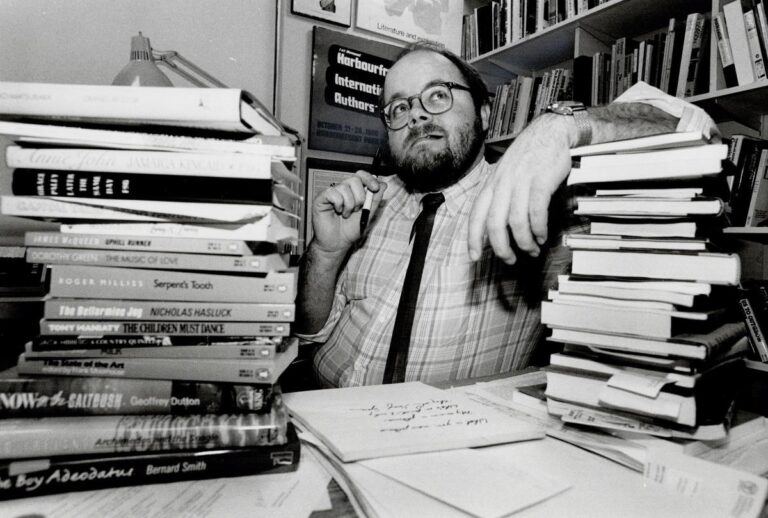
His programming—and Greg Gatenby himself— have received major profiles in the world’s leading periodicals.
Time Magazine, for example, declared that he had, more than anyone else in the city, made Toronto one of the literary capitals of the world.
The program and his directorship have also received singular praise from Newsweek, the New York Times, the Wall Street Journal, the Times of London, Le Monde, the Sydney Morning Herald, the Asahi Shinbun, Corriere della Sera, Writers off the Page, the Culture Trip and El Pais among many others—and the Los Angeles Times described the festival he created as the “Olympics of world literature.”
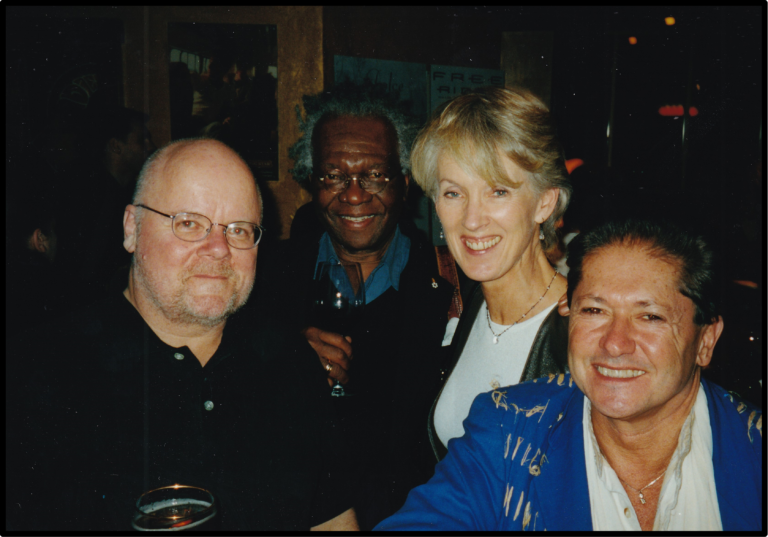
(In the picture above Left to Right: Greg Gatenby, Canadian author Austin Clarke, English novelist Joanna Trllope, and Canadian poet Jean-Paul Daoust at the McArthur & Company party at the 2002 International Festival of Authors, Toronto.)
One of the highlights of his career as an impresario was organizing and hosting, in October 2000, the largest, paid-admission literary event in the history of the world—a reading from Harry Potter by author J.K. Rowling. More than 20,000 people, mostly children, packed the SkyDome in Toronto to hear her read and speak.
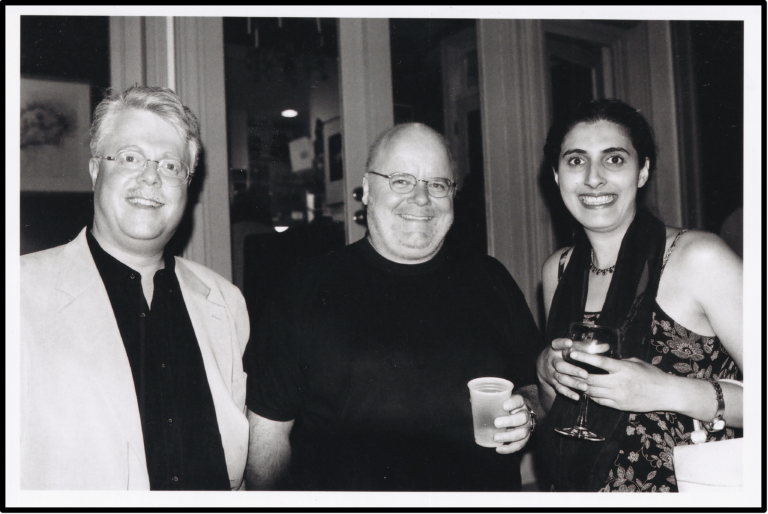
(In the picture above Man of letters Bruce Meyer, Greg Gatenby, and poet Priscilla Uppal at a receptions in the home of author and publisher Barry Callaghan, Toronto, 2002.)
As a result of his pre-eminence as an arts executive, Greg Gatenby has been a consultant to other literary festivals in London, England; Berlin, Germany; Sydney, Australia; Adelaide, Australia; Wellington, New Zealand; Calgary, Alberta; Amsterdam, Netherlands; Dublin, Ireland; Rotterdam, Netherlands; Taipei, Taiwan; and Lahti, Finland, among others.
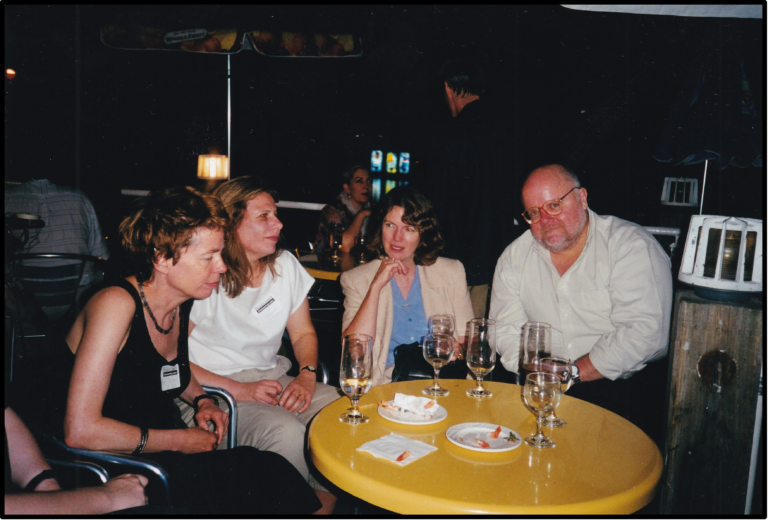
(In the picture above, Left to Right: Canadian authors Ann Ireland, Lesley Kreuger and Jane Urquhart share a table with Greg Gatenby conversing at a publisher’s party, Toronto, 1999.)
This global perspective on the literary arts was reflected in the fact that the IFOA, under his direction, was the only international gathering of authors which, each year, made a point of featuring writers from all six continents–to remind the media and the public that fine writing is published all over the planet and not just in the traditional cultural centres.
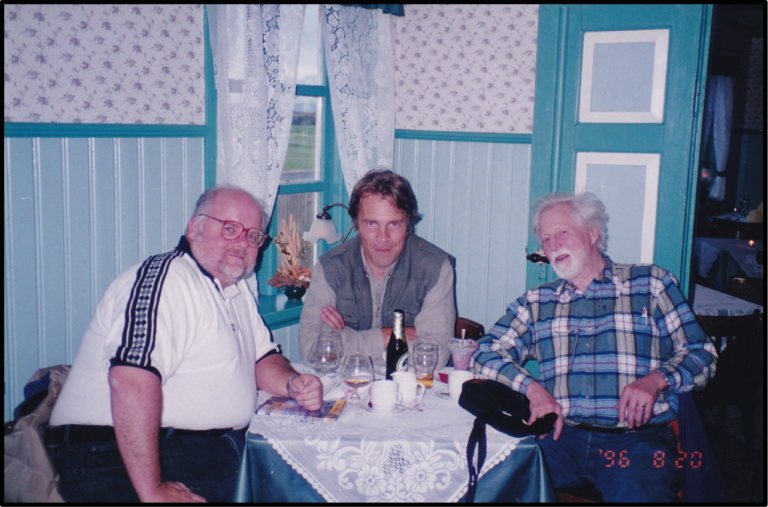
(In the picture above, Left to Right: Greg Gatenby with Icelandic authors Einar Karrasson and Thor Vilhjalmsson at an out-of-the way cade in Reykjavik, 1996.)
Greg Gatenby was a fulltime member of the Toronto committee (headed by Peter Ustinov) which formed and presented the cultural component of the Toronto bid for the 1996 Olympic Games.
He was also the lead arts-member of the Toronto bid for the 2008 Olympic Games–posts which brought him into constant contact over several years with all the major arts organisations and players in the city.
Among his recent activities, he was the literary adviser to the Artistic Director of the 2015 Pan-Am Games in Toronto, and for many years was ongoing adviser to the founding Director of the annual Berlin Literaturfestival.
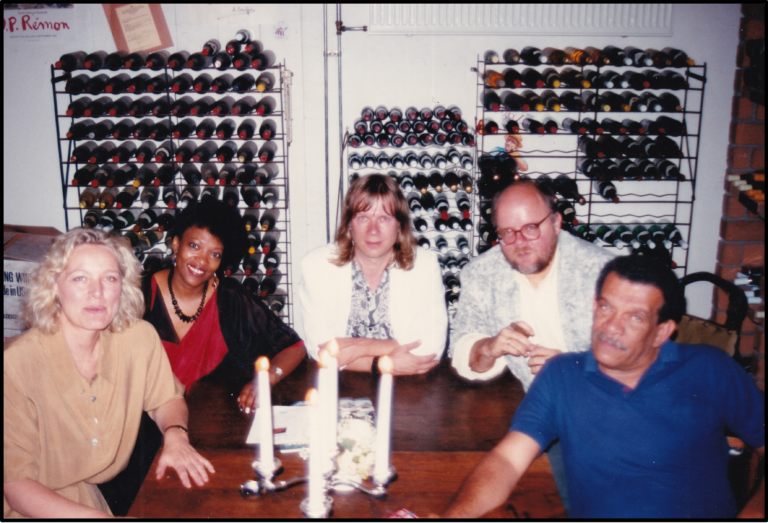
(In the picture above, Sigrid Nama (wife of Derek Walcott), American poet Rita Dove, her husband Fred Viebahn, Greg Gatenby, and Nobel Laureate Derek Walcott, June 1989 at a restaurant in Delt, The Netherlands.)
In the early 1990s Greg Gatenby established at Humber College the most distinguished School of Creative Writing in Canada. In the first year alone of his directorship this program attracted a stellar group of teachers—including Peter Carey, D.M. Thomas, Margaret Awtood, Ann Beattie, Richard Ford, and Caryl Phillips.
Rondeaus For Erica (Toronto: Missing Link Press, 1976).
Adrienne’s Blessing (Toronto: Missing Link Press, 1976).
The Brown Stealer (Oxford UK: Avalon Editions, 1977).
The Salmon Country (Windsor: Black Moss Press, 1978).
Growing Still (Windsor: Black Moss Press, 1981).
Canada Through The Eyes Of Foreign Writers, volume one: The Wild Is Always There (Toronto: Knopf Canada, 1993).
Canada Through The Eyes Of Foreign Writers, volume two: The Very Richness Of That Past (Toronto: Knopf Canada, 1995).
Toronto: A Literary Guide (Toronto: McArthur & Company, 1999).
For the Whales (Rhombus Media, 1989)
Selected Poems by Giorgio Bassani. Co-translators: Francesca Valente. Introduction by Northrop Frye (Toronto: Aya Press, 1980).

Celebrated Italian painter Enzo Cucchi (left) with Grerg Gatenby at Niagara Falls, to which Gatenby had driven Enzo and his family when they were visiting Toronto in 1992.
Enzo would later design the poster for the annual International Festival of Authors.
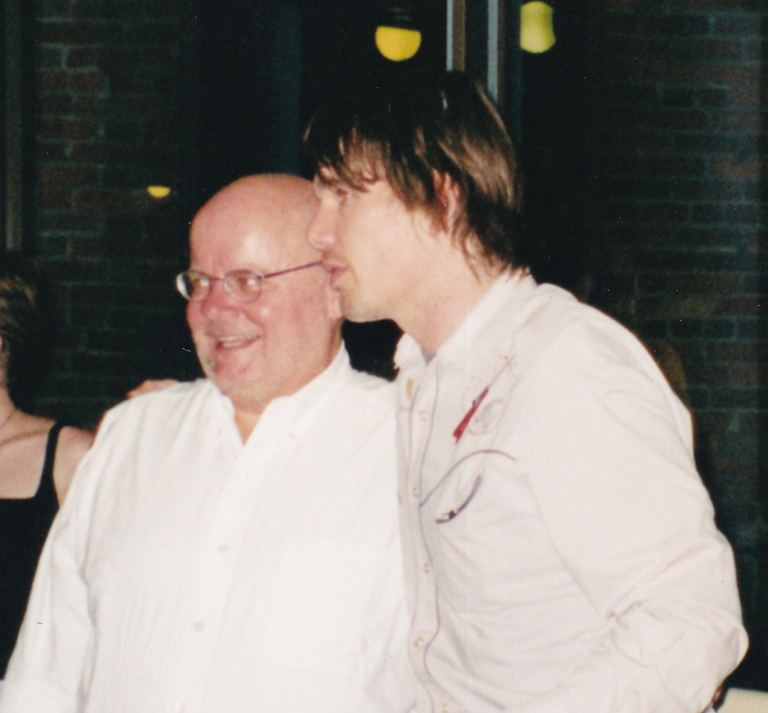
Greg Gatenby with novelist (and movie star) Ethan Hawke at the launch of the latter’s first novel in Toronto, August 1, 2002.
Temple University Poetry Newsletter [USA], Winter 1978, Canadian Poetry issue
La Semana de Bellas Artes [Mexico], Canadian poetry issue, 1981
Tamarack Review [Canada] Issue 81-82, Young Canadian Poets Issue. Winter 1981
Trends [Scotland], Vol 5, no. 10, Canadian Poets issue, 1984
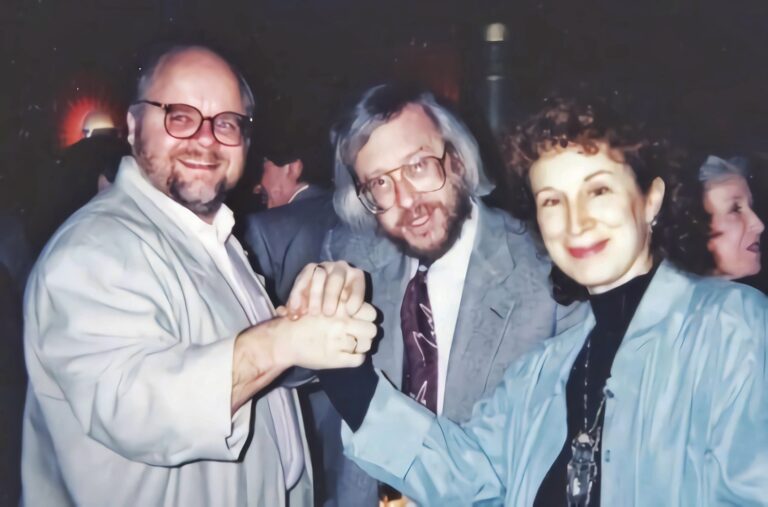
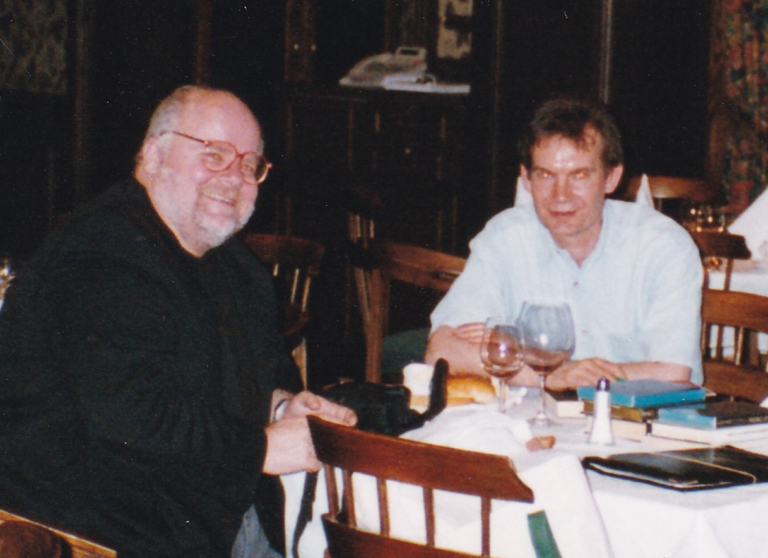
(The picture above shows English Novelist Graham Swift sharing a late night glass of wine at the Royal York Hotel, Toronto, in 1997.)
In 1989 Greg Gatenby was given the City of Toronto Literary Award, an honour conferred each year upon a person who has made an outstanding contribution to Toronto letters through his writing and his work on behalf of other writers. The two previous winners of the Prize were Margaret Atwood and Michael Ondaatje.
In 1991 he was made an Honorary Lifetime Member of the League of Canadian Poets, and received a similar honour from the Writers’ Union of Canada in 2013.
Other public endorsements of his literary activity include an honorary lifetime membership in the Venerable Arts and Letters Club of Toronto, as well as the initial Jack Award annually commending the person who has made a significant contribution to the promotion of Canadian authors.
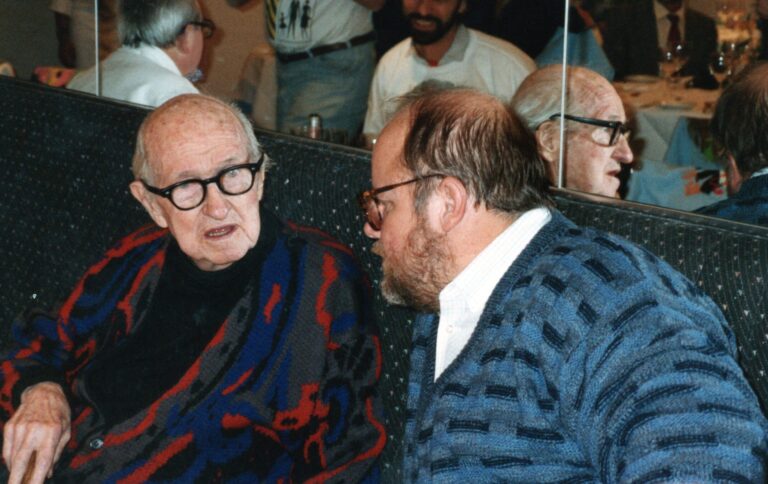
Stage Crew, Theatre Passe Muraille, Toronto, 1968-1969.
Editor, McClelland & Stewart, Toronto, 1972-4.
Teacher, English Department, Humber College, 1981-3.
Artistic Director and CEO of the Harbourfront Reading Series, 1974-2003.
Film and Screenwriting Programmer, Toronto International Film Festival 1979 and 1981.
Founding Artistic Director and CEO, International Festival of Authors, 1980-2003.
Literature and Books Columnist on CBC Radio’s flagship arts programme “Arts National,” 1981-1982.
On-air weekly book critic, CBC Radio “Metro Morning”, 1984.
Founder and Director, Humber College Creative Writing School, 1992-1993.
Producer & Host of “Authors at Harbourfront” (forty-six half-hour episodes ran on TVOntario from 1989 to 1991, and later on other provincial educational networks).
Producer & Host of “Authors at Harbourfront” a series of one-hour weekly programs on BookTelevision, a national TV network in Canada. 2000-2001.
Columnist, Books in Canada, 2004-2005.
Contributing Editor, Waves [York University], 1984-1987.
Contributing Editor, The Warwick Review [quarterly] published by Warwick University, Warwick UK, 2007-present.
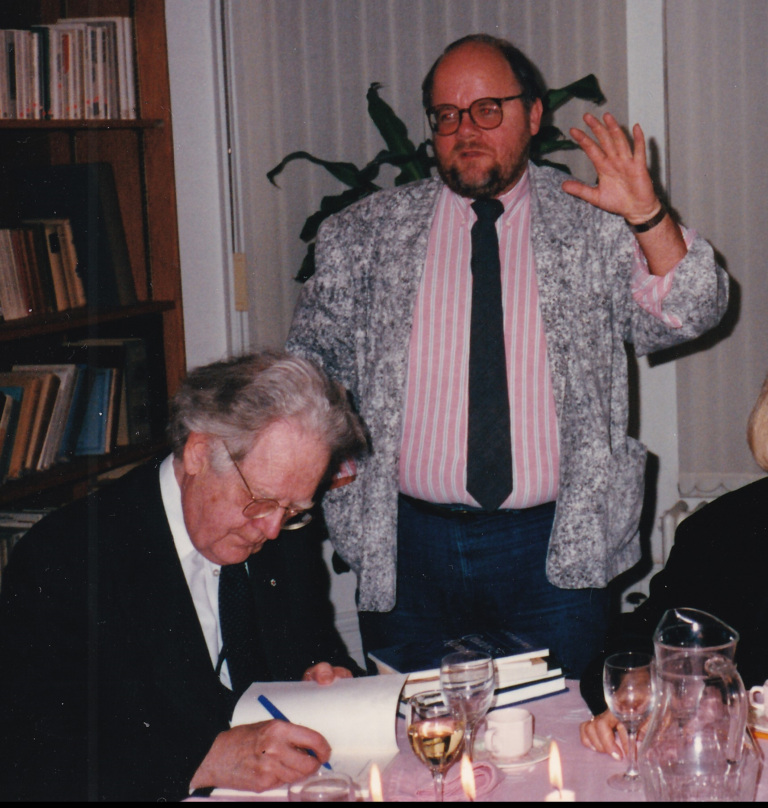
Impac/Dublin Literary Prize (at 100,000 Euros, one of the world’s largest prizes for a single book), 1998
Writers’ Trust of Canada Non-Fiction Prize, 2007
K.M. Hunter Artist Award (Literature), 2009
Ontario Arts Council Writer Grants, several years
Ontario Arts Council Publisher Grants, several years
Yale University (New Haven, CT), Windham-Campbell Prize Juror, 2013.
Voices on the Water (Open City Productions, 1987)
In The Beginning (CBC/John McGreevy Productions, 1988)
Behind the Bohemian Embassy (Sun TV/directed by Christopher Ban, 2010)
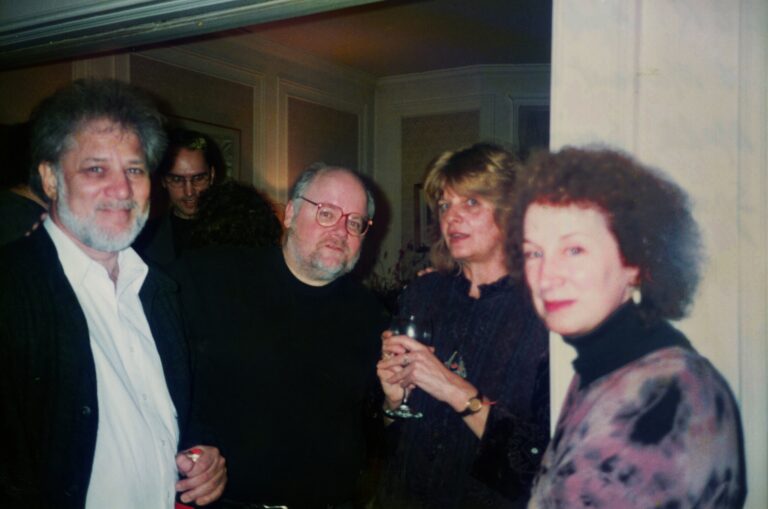
British novelist Ian McEwan said
“I think he changed the nature of readings in North America and in Britain. Back in the ’70s it was always this incredibly solemn, churchy feel to a reading. Now they’re much more kind of relaxed and pleasant and there’s more of a level interchange between writers and readers. Harbourfront was the only place you came where there was a bit of pizzazz, sophistication, a sense that a reading was not a church group, more like a jazz club.”

Margaret Atwood once stated,
“Greg set the model for all the other festivals.”
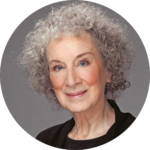

British Library, London
Emory University, Atlanta
Johns Hopkins University, Eisenhower Special Collections Library: “The Greg Gatenby Collection of Antique Postcards”
Middlebury College, Vermont
Toronto Public Library, Judith Merril Collection
Trinity College, Dublin’
Tyneside Public Library, Tyneside, UK
University of Queensland, Fryer Library
University of South Caroline, Columbia S.C.
University of Texas, Austin, Harry Ransom Center
University of Toronto, Thomas Fisher Rare Book Library, University of Toronto
University of Toronto, Robarts Library, “The Greg Gatenby Collection of Spoken Word Albums on Vinyl”
He has been a book reviewer for The Globe and Mail, The Toronto Star, Quill and Quire, and Macleans Magazine. He has given readings from his own work—and has given scores of talks and lectures about aspects of culture and history—in major universities and cultural centres in most of the European nations, as well as in the USA, Japan, Australia, New Zealand, China, and Taiwan.
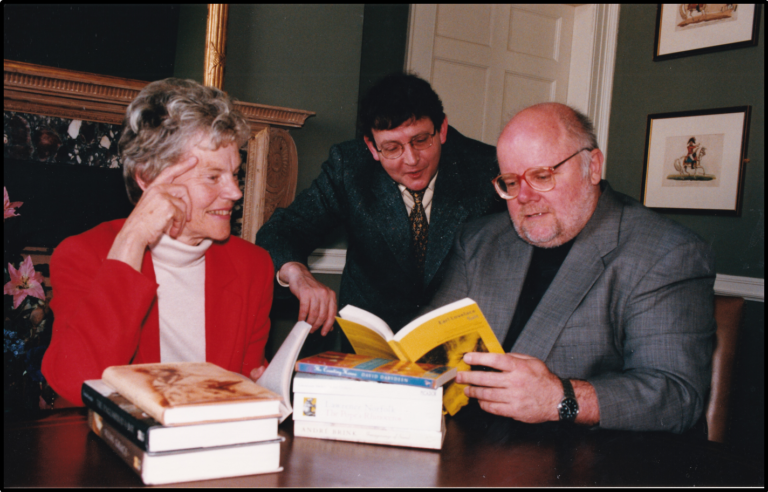
(In the picture above from Left to right: Finnish author Marta Tikkanen, Irish poet Paul Muldoon, and Greg Gatenby, in Dublin, as three of the six jurors for the 1998 IMPAC/City of Dublin Award.)
Since he left Harbourfront in 2003 to devote himself full time to writing, Greg Gatenby has been working on several mammoth book projects. The largest of these (titled Book of the Century) is a social, cultural, political history of the approximately one hundred years lading to World War One and the Great War itself. This book is approximately two years from completion. Among its many unique features, Book of the Century will contain thousands of vintage images never before published in any book.
Between visits to research libraries, Greg Gatenby is finding time to write his literary memoirs. Under his aegis at Harbourfront, he hosted appearances by over two dozen Nobel Prize for Literature.
In addition, he had, as his guest, hundreds of winners of the Booker Prize, the Pulitzer Prize, as well as other major international book awards.
In all, during his nearly 30 years directing the literary programming at Harbourfront, Gatenby hosted over 10,000 readings by 4,000 famed authors from approximately 100 countries.
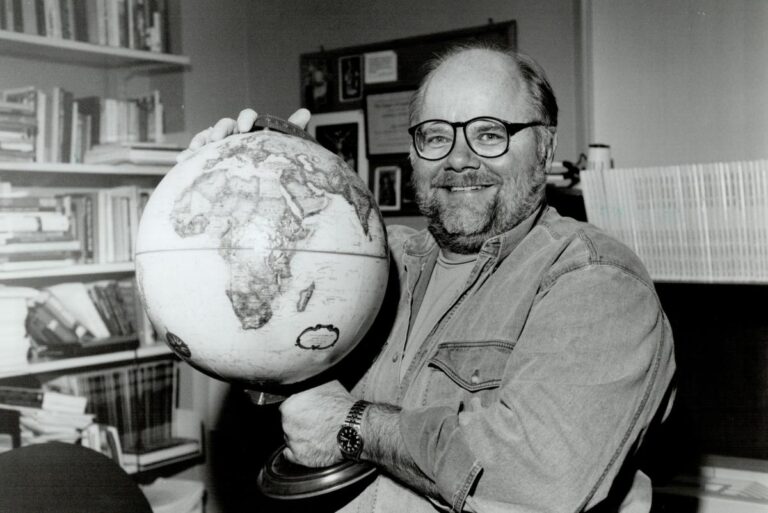
Greg’s travels have taken him several times across the 7,500 kilometers that comprise the width of Canada.
In addition, he has lived for several weeks or months at a stretch in dozens of American cities.
When he was eighteen, he first visited Europe and, since then, has explored and lectured in Europe in Austria, Belgium, Bulgaria, Croatia, the Czech Republic, Denmark, England, Finland, France, Germany, Hungary, Iceland, Ireland, Italy, the Netherlands, Norway, Russia, Scotland, Slovenia, Spain, Sweden, and Switzerland. His travels to the Eastern hemisphere have taken him twice to New Zealand and Australia for extended trips. He has lectured in (and has travelled through) Japan and China. And for half-a-year he lived in Taipei, Taiwan as Writer-in-Residence.
His purpose in going to most of these countries was to have meaningful encounters with as many important literary authors as was practicable. Thanks to national cultural agencies (such as the British Council), meetings were facilitated with several of the world’s most celebrated writers (including some of the most reclusive who were alleged to be allergic to pubic events of all kinds. Gatenby convinced them otherwise—no doubt to the unique combination of his heart-stopping humility with his irrepressible charm and, of course, his painfully good looks, a winning trio of traits usually more than enough to induce these same shy authors to travel exclusively to Toronto to read and discuss their work.
My travels have taken me to every province in Canada, 46 of the 50 American states, pretty well every country in Europe (including Iceland), Mexico, Aruba, Cuba, Dominican Republic, Australia, New Zealand, Russia, China, Japan, and Taiwan.
My purpose in going to most of these places was to meet with as many authors as was practicable. Thanks to agencies such as the British Council and the Goethe Institute, meetings with several of the world’s most celebrated writers (and some of the most reclusive) became delightful lunches or dinners.
My innate charm and painful good looks were usually enough to induce these authors to travel to Toronto to read and talk about their work, or contribute some writing to one of my anthologies—or both.
I began exploring the world when I was eighteen. For most of my adult life I visited countries on a foreign continent at least once a year. Some years I was abroad four, five, and once even six times.
My interest in History began well before I started to travel around the globe. Indeed, it was my interest in history (initially in literary and visual art history), which propelled me to visit the places about which I had read as a teenager.
From those queries it was an inevitable step to become voracious in seeking more knowledge about political, diplomatic, social, and military history, first as it related to the writers, painters, and composers I admired, and then, onto the wider world.
I have done research in many of the world’s great libraries and archival centres, including the British Library, the archives of the British Museum, the Library of Congress, the New York Public Library, many of the University of California libraries, Duke University, the Berlin Staatsbibliothek, the Paris Bibliotheque Nationale, and the University of Toronto Libraryies. In every instance I have been blessed with the assistance of library staff providing assistance well beyond the call of duty. Helping me to locate information which otherwise would have been unavailable to me. Thank to the duo of great libraries with great staffs I have been a very fortunate researcher.
I was born and raised in Toronto. After graduating with a B.A. in English from York University, I worked for two-and-a-half years as an editor at McClelland and Stewart, the largest Canadian-owned book publisher. There, I met—and often worked with—several of the nation’s leading poets and novelists. From M&S I moved to Harbourfront, then a newly-formed urban park in what had been Toronto’s old, abandoned port lands.
Soon after arriving I was invited to assume direction of the weekly poetry reading program. At the time, this program consisted of a local poet with a modicum of renown, she or he followed by an open mike. A combination of factors (including increased funding) allowed me to expand the program, at first by inviting authors from across Canada, and, starting in 1978, from around the world.
Success with this larger canvas inspired me in 1980 to start the International Festival of Authors (IFOA), an annual gathering for about one week of dozens of the globe’s most respected writers of fiction, poetry, biography, and drama.
By the time I left Harbourfront in 2003, I had hosted readings and talks by well over 4,000 of the planet’s most acclaimed authors representing close to 100 countries.
In addition to my work as a literary impresario, I myself have published books: collections of my own poems, anthologies about whale and dolphins, and three large cultural histories.
My literary labours have received wide and very positive attention from all the leading press outlets in Canada as well as from The New York Times, The Wall Street Journal, Newsweek, The Times of London, Le Monde, the Sydney Morning Herald, Asahi Shinbun, Corriere della Sera, and El Pais among many others—and the Los Angeles Times described the festival I created as the “Olympics of world literature”.
Margaret Atwood has stated “Greg set the model for all the other festivals.” British novelist Ian McEwan said “I think he changed the nature of readings in North America and in Britain.
Back in the ’70s it was always this incredibly solemn, churchy feel to a reading. Now they’re much more kind of relaxed and pleasant and there’s more of a level interchange between writers and readers. [Harbourfront] was the only place you came where there was a bit of pizzazz, sophistication, a sense that a reading was not a church group, more like a jazz club.”
Running a program as diversified as the one I managed at Harbourfront meant I had to travel a lot, scouting for young, new talent as well as to meet with the most venerable. My travels round the world have allowed me to indulge some of my other passions, such as art history, opera—and, as my girth will testify, fine dining.